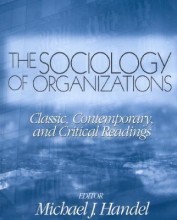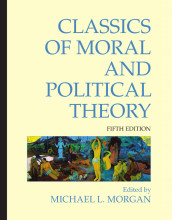Summary: The Sociology Of Organizations | 9780761987666 | Michael J Handel
- This + 400k other summaries
- A unique study and practice tool
- Never study anything twice again
- Get the grades you hope for
- 100% sure, 100% understanding
Read the summary and the most important questions on The Sociology of Organizations | 9780761987666 | ed. Michael J. Handel
-
1 Organizations as rational systems I
This is a preview. There are 21 more flashcards available for chapter 1
Show more cards here -
How can organizations be definited?
- A. deliberately planned groups
- B. with some specific apparent goal or go goals
- C. generally designed to outlive the participation of the particular individuals who participate at any one time
- D. having a more or less well-developed set of formal rules and
- E. a relatively fixed structure of authority, roles, and responsibilities that is independent of the personal charcteristics those filling the roles at any paritcular time
-
Weber compared modern bureaucratic authority what other kinds of authority?
Charismatic and traditional -
Weber predicted that socialist economies would be even more bureaucratic, why?
A planned economy requires collection of more technical knowledge than market economies and tries to exercise more conscious and directive control over the economy through government planning. -
One of the flaws of Webers work:
Sometimes, Weber suggests that bureaucratic authority is based on position in the hierarchy of command but other times he suggests it is based on expert knowledge -
What is line management?
A clear hierarchy of authority from the chief executive to division, department or plant managers and first-line supervisors, and is responsible for the organization's core activities such as production. -
What is staff (management) ?
It provides advice, support and control in areas such as research and development, personnel and accounting. -
How did Fayol describe the bureaucratic organization?
A division of labor andspecialization of function allows administrators to develop specialized knowledge andproficiency in their tasks. A chain of authority ensurescoördination , discipline andconstancy of purpose. -
What is restriction of output?
Small work groups use peer pressure to enforce a moderate work pace on all their members to make sure there would be no speed up without pay (rate cutting) -
1.1.1 1. Bureaucracy and Legitimate Authority (1924)
This is a preview. There are 15 more flashcards available for chapter 1.1.1
Show more cards here -
The three pure types of autority (weber)
- Rational grounds
- Traditional grounds
- Charismatic grounds
-
There are 3 pure types of legitimate domination. The validity of the claims to legitimacy may be based on:
1. Rational grounds, 2. Traditional grounds or 3. Charismatic grounds
- Higher grades + faster learning
- Never study anything twice
- 100% sure, 100% understanding
Topics related to Summary: The Sociology Of Organizations
-
Organizations as rational systems I - Critique - The Degradation of Work in the Twentieth Century (1974)
-
Organizations as rational systems II: Contingency theory and the discovery of organizational variation
-
Organizations as human and social systems I
-
Organizations as open systems: organizations and their environments
-
Street-level Bureaucracy. Michael Lipsky

































